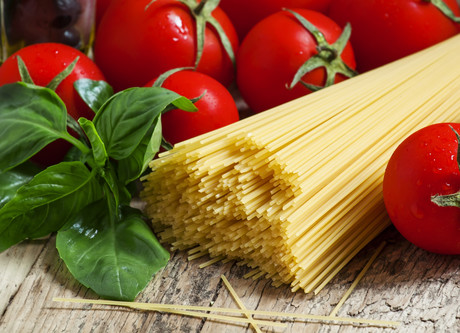Why the food industry is nicer than the banking industry

The apparent greed and lack of ethics by supposed ‘professionals’ in the banking and finance industry is appalling the general populace at the moment. Financial institutions endorsing the charging of clients for non-existent services, financial advisers giving clients advice based solely on the profitability of the advice for themselves… It actually wouldn’t be hard to find an industry that is nicer than banking and finance.
However, the food industry is not just nicer and behaving ethically but actually giving back to the broader community.
Food insecurity
For many Australians, access to a sufficient quantity of affordable, nutritious food is not reliable. This food insecurity is often a short-term predicament triggered by something as simple as missing a shift at work or the family being hit with an unexpected medical incident. The vulnerable include low-income earners, older Australians and the unemployed in rural and regional areas. Wherever people are living pay cheque to pay cheque, it doesn’t take much for the household budget to be stretched beyond capacity, and for food to suddenly become a discretionary item.
Research has shown that 3.6 million Australians experienced food insecurity in the last 12 months and sadly, this included 1 in 5 children.
Enter Foodbank
Foodbank Australia is a not-for-profit charity that sources and distributes essential food and groceries to support a network of more than 2400 charities and 1750 schools. Each year it distributes over 37 million kilograms of food and groceries — that’s the equivalent of over 183,000 meals a day. Foodbank accounts for 65% of all the food distributed to charities by food rescue organisations in Australia.
“Foodbank is currently doing the heavy lifting when it comes to food relief in this country,” explained Foodbank Australia CEO Brianna Casey.
Where does Foodbank source the food?
Foodbank works with the entire Australian food and grocery industry including farmers, wholesalers, manufacturers and retailers. Donations include stock that’s out of specification, close to expiry or excess to requirements. Companies also make donations as part of a commitment to social responsibility or a cause-related marketing campaign.
Donated food works on a “surprise chain” not a “supply chain” system. One day the charity might receive a truckload of watermelons, the next cases of chicken schnitzel. This is all very welcome, but to be effective the charity needs a supply of key staple foods that don’t come in sufficient quantities via rescue channels. For this, Foodbank collaborates with suppliers, manufacturers and transporters.
And it is here that the food and beverage industry really differentiates itself from the bankers and shows that it has a heart.
Food companies donate or subsidise the ingredients and services to produce, process, package and transport essential items such as breakfast cereals, pasta and pasta sauce, sausages and tinned fruit and vegetables. For items that cannot be obtained through donations, Foodbank relies on financial contributions from the public and corporate sector.
Let’s look at pasta
Foodbank requires 800 tonnes of pasta each year to make 8 million meals. To make this level of donation sustainable the burden of this is not borne by a single company but spread across all participants in the supply chain.
- Rinoldi — took on the Product Lead role to manufacture Kookaburra Pasta.
- Grain Growers & Traders — donated the wheat.
- George Weston Foods — donated flour and milled the wheat donated by CBH.
- Manildra — donated flour.
- Perfection Packaging and Shorko— provided packaging at a reduced cost.
- Visy — provided cartons at a reduced cost.
- Toll Logistics — transported the product from the factory to all Foodbank distribution centres.
- FaHCSIA, Microsoft, ANZ Bank and CSL — provided funds to pay for inputs that could not be fully donated (balance of packaging costs etc). Every $1 provided by the financial donors resulted in enough pasta for 26 meals.
What’s pasta without the sauce?
Since 2008, Simplot has played a pivotal role within a team of suppliers who develop pasta sauce specifically for Foodbank through the Key Staples Program. The company donates its manufacturing facilities for four days a year to produce the sauce to distribute to Foodbank’s 2600 frontline charities. Victorian tomato growers donate the tomatoes and a host of other companies donate the packaging, transport and logistics.
In 2017, Simplot produced its 1 millionth jar of pasta sauce for Foodbank through the program.
What federal government support?
In the latest Budget delivered by Treasurer Scott Morrison on 8 May, Foodbank’s requests for immediate assistance do not appear to have been addressed even though the number of Australians facing food insecurity is increasing. Foodbank presented a compelling case for the federal government to invest more meaningfully in the not-for-profit’s sourcing and distribution of key staple food items without success so it seems that the food industry will have to step into the breach.
Every donation is worthwhile, be it cash, kind or labour. Thank goodness the industry is full of foodies, not bankers, who are willing to make a difference. If you or your company would like to help, visit ‘Want to help?’ on Foodbank’s website.
Five trends reshaping the snack food industry
Many consumers are demanding more from their snacks: more function, flavour and transparency...
The future of food under weight-loss regimes
Eating patterns are changing as a result of the surge in the use of weight-loss medications and...
Food Talk speaks to food technologist with an eye for safety
In this article, food technologist Anusha Patnam shares her thoughts about the need for...











